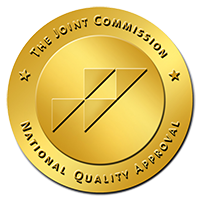
Take Time to Be Well
Take time to be well or you’ll have to take time to be sick. Not sure where I heard this but it has stuck with me. And oh, is it true.
A reader who attended a lifestyle program after a recent heart attack said it this way: “The one thing I have come away (with) from my medical blip is that it is best to avoid medical problems, especially heart disease. It is now so prevalent, a big killer, and affecting younger and younger people. I’m feeling better now and am in better shape than 6 months ago, prior to my heart attack. Count me as one who has really learned a lesson.”
We can’t always avoid some medical difficulties, but get this: According to the World Health Organization (WHO), at least 80% of all heart disease, stroke and type 2 diabetes and over 40% of cancer could be prevented IF we could (or would) eat a healthier diet, get more physical activity and stop smoking.
And may I add another one? Take time to sleep. Health-wise, adequate sleep (7 or more hours a night) is not an option, say experts. A recent study in the Journal of Sleep Research found that sleep-deprived individuals who increased their sleep time somewhere between 21 to 177 additional minutes per night were better able to control their cravings for sweets and salty foods and eat fewer calories during the day. These folks also had measurable improvements in their ability to avoid type 2 diabetes.
What does “eat a healthier diet” really mean? In terms of avoiding medical problems, it always begins with vegetables. As much as cavemen, vegans and everyone in between argue about the best diet for long term health, the one common denominator is a diet rich in vegetables. A healthful dose of vegetables is somewhere between 2 to 4 cups of a variety of raw or cooked veggies a day. (Check out www.choosemyplate.gov to get an exact recommendation for your individual needs.)
Study after study confirms that a diet richly enhanced with an array of colorful vegetables (more than corn and potatoes, please), provides nutrients and other powerful substances that protect the body from cancer, heart disease and type 2 diabetes. Think about it; if we take the time to grow or buy, prepare and eat more vegetables and fewer salty French fries, we may not need to spend valuable time trying to recover from a stroke, heart attack or other serious condition.
And while we’re building muscle and endurance with additional physical activity, let’s not forget the building blocks of that six-pack—proteins. New research is now emerging that as we reach our mature years, we need more protein than originally expected to prevent weakness and enhance our immune system. Take time to include foods like eggs, fish, poultry, lean meats, beans, nuts and soy foods in each meal. It’s better than having to take time to recover from a serious fall or illness. I’d say that’s time well spent.
Barbara Quinn is a registered dietitian nutritionist at Box Butte General Hospital. She is the author of Quinn-Essential Nutrition: The Uncomplicated Science of Nutrition.Email her at bquinn@bbgh.org.


